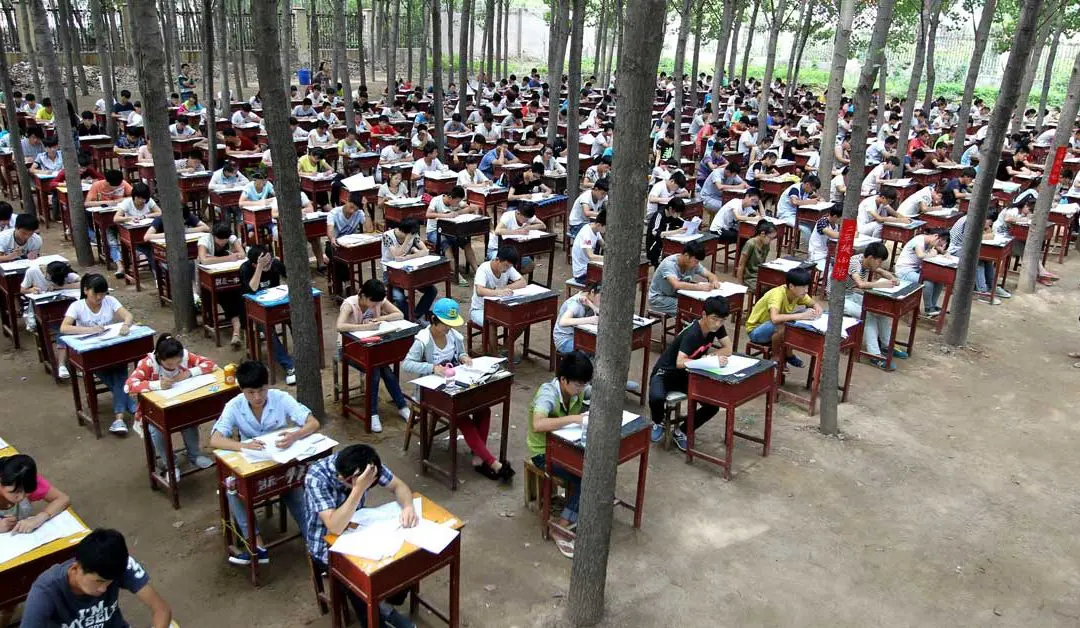Why is English so hard for the Chinese?
About 300 million people in China are learning English, but only a handful of them are able to speak it
In modern Chinese society learning the English language is a top priority. According to the official statistics, about 300 million Chinese are learning English – that’s nearly as many people as there are in the U.S. It is a part of general curriculum in schools, and is a mandatory subject during the first two years in Chinese universities.
Nevertheless, despite all these efforts, only a small portion of the population is able to speak English, even at the basic level. Many Europeans, coming to China for the first time, face such a serious language barrier, that it makes them literally disoriented at first.
Thus, the question is: “Why, despite all the efforts, English remains such an overwhelming challenge for the Chinese?”
There are several major reasons for it. The first and the most obvious one is that the Chinese language (the group of Chinese dialects, to be more precise) is completely different in its structure, compared to English. It has simple grammar and sentence construction; words usually consist just of two, rarely three syllables. The concept of tenses is totally alien to the Chinese. It all makes learning English very challenging for them. Nevertheless, in Hong Kong, Macao and Taiwan the level of proficiency in English is much higher.
In fact, the problem has its roots in the Chinese system of education and in certain socio-cultural aspects.
The Chinese start to learn English at primary school, but the whole learning process is based on the countless hours of memorizing. Children are supposed to recite and to copy what their teacher tells them, without ever asking the question “Why?”. The majority of English teachers have never left China, let alone visiting any European country. For them such dogmatic approach to teaching is the natural order of things.
School funding directly depends on the final examination results, which is basically a multiple choice with only a small portion of assignments to assess speaking, listening and writing skills. The whole system of school education is aimed at extensive training for this test, in the first place.
The consequences of such approach are quite grim: school graduates have been taught to memorize tons of useless information and to do standardized tasks. It makes even a simple real-life communication in English very challenging for them.
In addition, the Chinese government is concerned about the growing influence of the Western culture. Its media, movies, TV series and videogames could provide additional motivation and become an accessible way to improve language skills. But the access to these sources is strictly limited by “The Great Chinese Firewall”. As a result, schoolkids basically do not have any foreign language practice outside of school.
China has by far the largest number of people in the world, studying English language. But quantity doesn’t mean quality, and there are no indications, that this situation will change for the better in the near future.
More topics about Chinese mentality

Attitude to money in China
Money means everything in Chinese culture People in China are known to have a full blown obsession with money. Their lives revolve around how much you earn and how much you can spend They are some of the biggest spenders in the world, yet they are also famous for...

Work around the clock in China
Chinese tradition to work overtime A lot of Chinese companies expect their employees to work according to the rule of “996” - working from 9am till 9pm and 6 days a week. For instance, Alibaba founder Jack Ma has recently made a bold statement defending...

The importance of lunch in China
Food culture is an integral part of Chinese mentality Mealtime is one of the most important activities in Chinese everyday life. A Chinese person can’t do his work properly without a regular substantial lunch The Chinese tend to wake up early, and by 8 AM...


